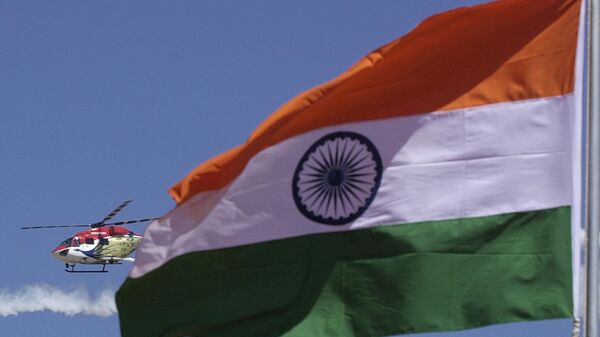For some, the memories of partition may be a painful reminder of the traumatic experiences of the journey - a popular mood reflected in the literature and novels written on the topic; while for others, it's a man-made catastrophe marked by extreme brutalities which could have been prevented.
Urvashi Butalia, a renowned author who wrote, 'The Other Side of Silence: Voices from and the Partition of India, which talks of the pain of partition through the lens of women, children and ordinary people, tells Sputnik that why there is a need to keep the discourse alive today.
"It is important... not only to understand the pain of partition but to understand how we can move towards a society where we understand the human capacity for violence and work to ensure that something like Partition never happens again," she explains.
The Radcliffe Line, the boundary between India and Pakistan, was decided upon on 12 August 1947 and was published on 17 August. The British and the journalists who were eyewitness to the partition and the communal violence in response to the division of territories, described the atrocities committed as "worse than that of Nazi camps".
Women and children were said to have suffered the worst. A narrative records that women's breasts were cut off, branded with religious symbols, and were transported to the other sides of the border.
While the Indian National Congress had initially resisted partition, the country's first Prime Minister Jawaharlal Lal Nehru envisioned a more consolidated version of India to accommodate the diversities and the princely states, for which partition seemed inevitable.
New Interpretations of Partition
India has completed 73 years of Independence and is usually dubbed by the press the largest democracy in the world. On being asked whether there has been enough scope for the fresh interpretation of the events that occurred during the partition, Urvashi states that the last 20 years have been full of such new perspectives.
"These (interpretations) have taken many forms: in art, in theatre, in fiction, in graphic books, in poetry and in exhibitions and museums and so on. This is a good thing, as now we have many different perspectives that allow us to understand this important time in our history," said the feminist writer.
However, a section of historians and authors of independent India believe that there is an absence of public debate, or representation, of Partition. The discussion was held during the virtual panel discussion at the 4th edition of Neev Literature Festival, held on the occasion of Independence Day.
Siddhartha Sarma, an author-historian, who was the moderator for discussion, tells Sputnik that it is vital for every generation to re-engage with the foundations of this country.
"With the passage of time, the emotions felt by the generation which gave Independence to India might appear distant and muted. Though partition is talked about in the country, the addition of lived experiences and insights in textbooks ... will also enrich the understanding of the event," Sarma pointed out.
The Controversies
Partition continues to remain a sensitive issue in the country. Conflicting and revolutionary opinions, and the ideological chasm reflected in the books have led to controversies in India.
In 2019, the Supreme Court of India lifted the ban on a book titled 'Jinnah: India, Partition, Independence', authored by Indian writer Jaswant Singh. The court upheld that ban could not stand in the eyes of law and violated the fundamental rights.
The book had created controversy for "praising Pakistan's founder Mohammed Ali Jinnah and criticising Sardar Vallabhai Patel, the man credited with the unification of Indian territories after partition.
Similarly, a row followed historian Bipin Chandra's book for using the term "Revolutionary terrorist" for Indian freedom fighter Bhagat Singh, in his book titled, 'India's Struggle for Independence'. Interestingly, the controversy surfaced nearly after the book had already been in print for three decades.





